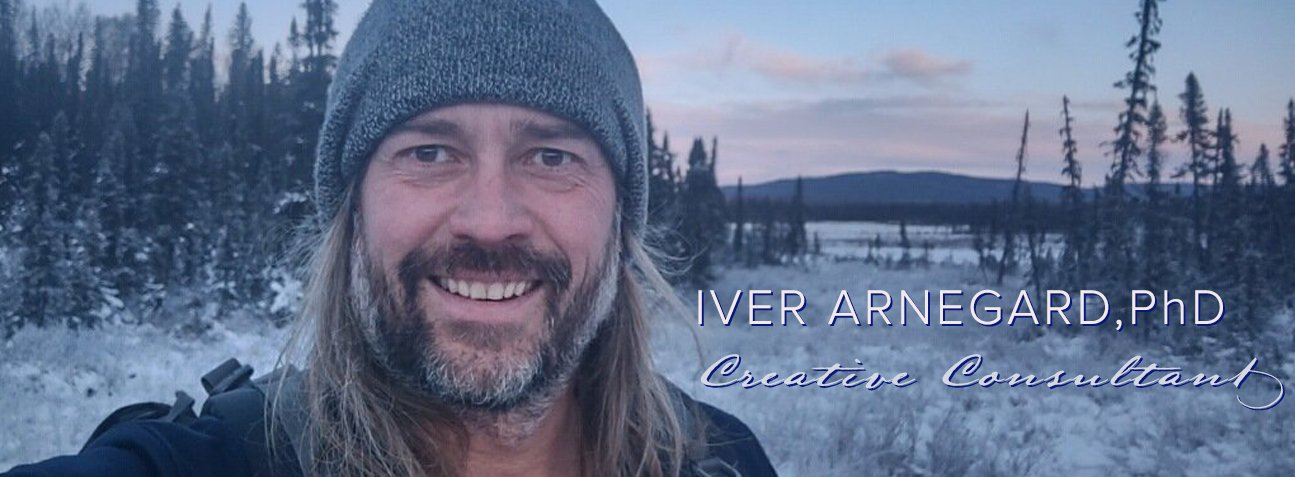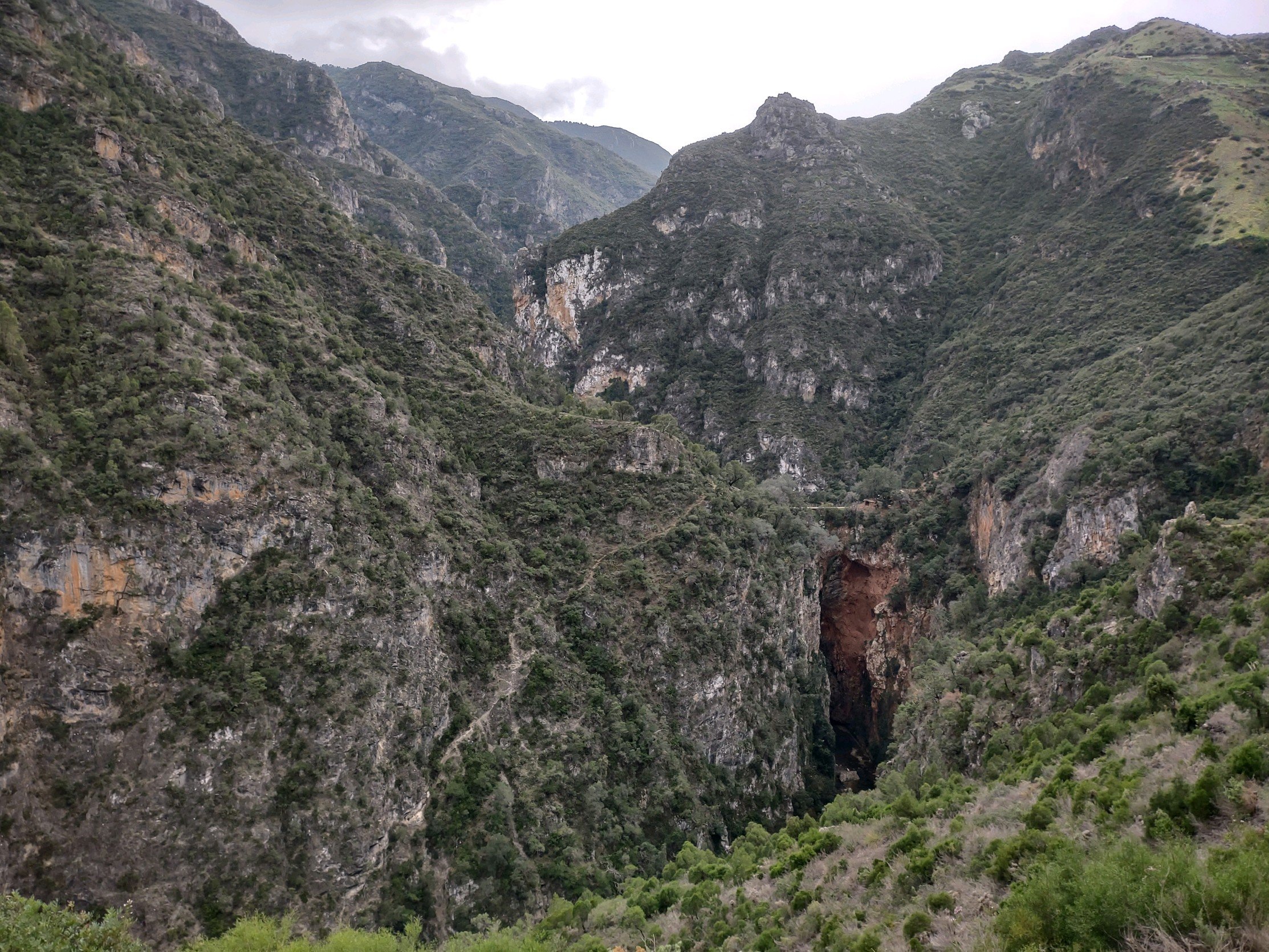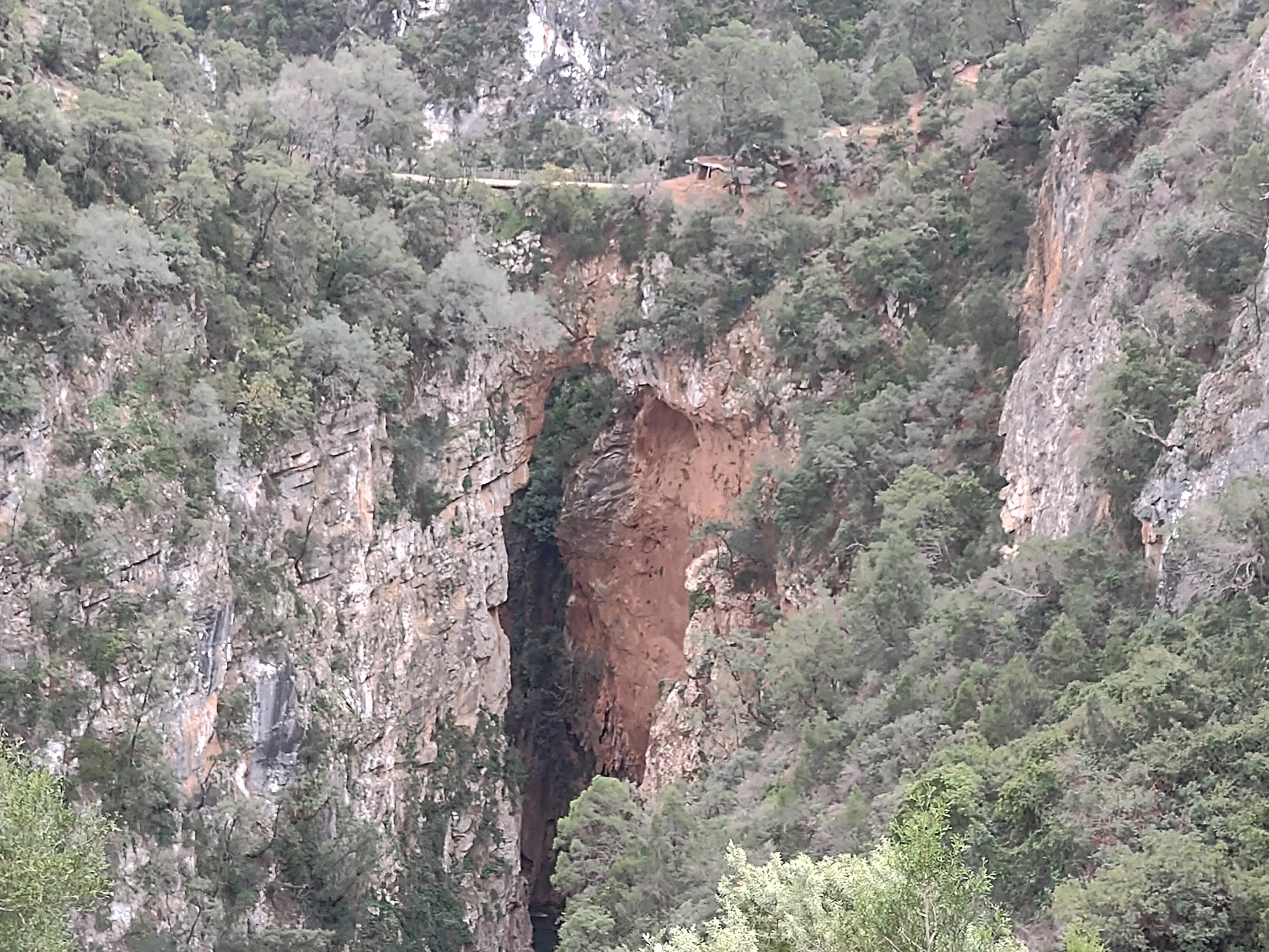God's Bridge
“Keep closed,” Nabil yelled, reaching back to yank the blinds across the window in front of me. As we swerved down narrow streets, Tamara and I clung to a half broken bench seat behind Nabil whose son rode shotgun while his brother sat somewhere on the floor in back of that rusted-out minivan.
There are some bridges only God could build. And we were on our way to one of them—a natural earth and rock formation deep in the Rif Mountains. Actually God’s Bridge was the main reason we’d travelled across the world to this obscure part of North Africa. Earlier that day we’d pounded the streets of Chefchaouen, trying to flag a taxi.
Cabs were scarce and the few we’d found wanted 200 dirham for the trip. We were about to call it quits when we met Nabil who said he’d take us for only twenty. Nabil was a hash farmer— not a cab driver—but we’d almost given up on making it at all and, in our excitement, forgot all caution when we climbed in his old, dented Toyota.
But, wait. I’ve got to fast-forward first so this makes sense to you. Not all strangers on our journey were dangerous. Quite the opposite. A few days after Nabil—on the streets of Fes—we’d meet Hassan, a man who would change our lives forever.
Of all the markets and Souks I’ve seen—from Damascus to Luang PraBang—the Fes Medina is the most extensive. With 9,000 streets, newcomers lose their way in this ancient labyrinth. Some lanes are narrow as hallways. Others choked with donkeys, horses, mopeds, and peddlers. Parades of Moroccan musicians drum their way through the crowds. A dizzying wilderness of cement and stone, pulsing with all walks of humanity. For centuries adventurers have crossed deserts, mountains, and oceans to come here.
Our first night in Fes, after exploring the Medina, we search for dinner outside the ancient walls of the souk where dozens of restaurants wait nearby the Blue Gate. So much to choose from. Of course it’s the one pulsing with music that draws us in—a band jamming in the corner of The Terrace as we find seating. Nearby, a lively Arab man claps loudly for the band, weaving between tables to inspire the audience to clap with him. It’s obvious he senses our enthusiasm and it’s not long before he walks over and introduces himself. Bending down in front of us, he yells “I’m Hassan!”
We yell our names back to him and he leans closer.
“What instrument is that?” Tamara asks, nodding toward the three stringed, wooden piece that looks like a guitar and sounds like a bass. He tells her it’s a Gnawa.
Tamara is an incredibly talented guitarist, singer and songwriter. Before I knew her, I used to cheer her on and dance to her tunes whenever she came to Talkeetna. It’s what drew us together. Later, on our first date, we spent most of the night listening to music and comparing our favorite bands. Tedeschi Trucks, Mandolin Orange, B.B. King. There was a lot of overlap.
I pull out the extra chair at our table and ask Hassan to sit with us. He does and we talk music till our waiter brings the check.
“Come to my house,” Hassan says suddenly, after I pay the bill. “I have mint tea. And, for you, wine or whiskey if you like.”
Tamara flashes me a look. A kind of question. She knows I’ve accepted invitations like these from strangers all over the world. Never been harmed or even threatened. I count them as the best experiences of my life. But I travelled alone in those days. Now, I’m responsible for her and a promise I made to her son, Noah, to keep her safe—the last thing he asked dropping us off at the Anchorage airport weeks before. Still, this man Hassan seems kind and generous. Not dangerous. I don’t sense that at all. So, smiling back at Tamara, I shrug and nod.
We follow Hassan out of the restaurant, through the huge Blue Gate, and back into the Medina. Weaving through streets where camel and sheep heads hang from meat hooks. Barefoot children beg for loose change as we pass.
“One more turn,” Hassan says and a dozen feral cats spray from our feet as we veer left into a dark and narrow alley.
“Almost there,” he assures us, and I look around, wondering if we could ever find our way back to the Blue Gate or our riad.
A few hundred yards later we come to a dimly lit green door. My heart rate’s up and I’m beginning to wonder what I’ll do if Hassan turns on us when a little Moroccan girl opens the door. This, he tells us, is his daughter—Zahra—and instantly all my anxiety evaporates into the ether above Fes.
“These are my friends,” he tells her. We smile as she blushes and pulls the door open wider. Hassan turns back to us. “Please,” he says. “My home is your home.”
So he ushers us down a hallway to his living room where a slightly younger Arab woman greets us.
“My wife, Soukaina,” he beams.
She shakes our hands in turn. “Marhaba,” she says. Welcome.
We sit on couches around a low table while Soukaina disappears to fix us tea.
Hassan turns to Tamara. “Are you Moroccan?”
Tamara blushes. “No.” It’s actually not that first time someone’s asked. And it won’t be the last.
“Little bit? Sure? You could be.” Hassan smiles. “You have an international face.” It’s true. Tamara really does have an exotic look. One that could blend in with many cultures.
Soukaina returns with a tray of mint tea, passes us each a glass, and sits next to Hassan across the table from us. Zahra pads back into the room to hug her parents and tell us she’s going to bed.
“How old is she?” Tamara asks after she’s left the room.
“Seven,” Hassan says.
Tamara gets out her phone, scrolls to a picture of her own children, and reaches across the table.
Soukaina and Hassan smile. “Alhamdulillah,” Hassan says. Thanks to God. “After you have one children you love every children!”
In that moment I realize I’ve never felt so close—so fast—to anyone I’ve met before. Hassan and his family exceed the legendary Arab hospitality I’ve always heard about.
After we finish the tea Hassan asks if we want some wine. He and his wife don’t drink but have bottles that guests and friends have left behind. We say yes, he disappears for a moment, and comes back with a small bottle of red. He pours us each a glass, settles himself on the couch again, and looks up.
“Can I sing you a song?” he asks.
We turn to each other and nod. Then look back to him. “Of course.”
Hassan clears his throat, closes his eyes, and starts drumming a beat on the table. A few seconds later he’s singing in Arabic. A kind of lullaby. I don’t understand the words, but the song is beautiful. When he’s finished he opens his eyes and smiles.
“That was amazing,” Tamara says.
I smile even wider. “I love it.”
“Can I sing another?” And he does. This one is even more beautiful.
Tamara sings her song, “Alaska,” acapella and Hassan cheers. She gets her phone back out and plays videos of some of her performances. Hassan, Tamara, Soukaina, and I talk deep into the night.
“We should make music together,” Hassan tells Tamara.
She smiles. “A Moroccan-American fusion. Alaska and Fes.”
It would actually be an incredible collaboration. Our friend, Ben, is the best guitarist in Alaska and one of the best musicians I’ve ever heard. Not only that, but he was also raised in Africa. Even lived in Morocco. He would make an amazing bridge.
“You could call your album The Face of the World,” I say, and we all raise a glass.
Before we leave, Hassan insists we return tomorrow for lunch. We promise we will and say goodbye.
Soukaina hugs Tamara. “My home is your home. We’re sisters now.”
Later, Tamara tells me that that moment was one of the greatest honors of her life. How someone she’d just met could be so genuinely open, welcoming, and loving. We can’t stop smiling as we navigate the maze-like streets to our riad.
The next day we’re back at Hassan’s. This time with his extended family. Two sisters, his mom, and some close friends. Soukaina has made couscous in a tajine and we all sit around their living room table. The couscous is mixed with potatoes, carrots, lamb, and carmelized dates and we all eat from the same giant bowl. When one person’s finished, they spoon their food in front of someone else. But we have to finish the meal together or else it’s bad luck.
Afterwards we talk more about Tamara and Hassan’s collaboration. Hassan invites us to leave our riad and stay with him and that’s exactly what we do for the rest of our time in Morocco.
When we finally leave for the airport early one morning we hug Hassan.
“It was God’s plan for us to meet,” he says.
“Yes,” I say. “I think you’re right.”
We witnessed similar acts of generosity and kindness throughout our trip. In every country we visited people gave and gave, expecting nothing but gratitude in return. Tamara is easy to travel with. Naturally curious and caring, like-minded people are drawn to her wherever she goes, regardless of language or cultural barriers. Open-hearted people, I’m now convinced, attract each other.
There was Rana, the Pakistani Uber driver in Portugal. He’d moved to Faro after his father was killed in a bombing in Islamabad. Rana drove us all over the city, helping us find a place to stay. Even stopping at stores so we could replenish our supplies. And at the end of it all he wanted nothing in return. We had to force him to accept 40 Euros.
There was Dora and Arni in Iceland, whom we’d never met before our mutual friend, Charissa, told us to reach out to them. And still they housed and fed us—total strangers—for three days and three nights.
Imand in Chefchouan, who taught us the ropes of the Blue City, showered us with gifts, and refused reciprocity.
Even Nabil. He only kept the blinds of his minivan drawn till we passed the police station and left the city. Afterwards, we let the light back in as we climbed up into the Rif mountains, across the stunning Moroccan landscape.
Nabil knew about as many English words as I knew Arabic. Which was maybe a dozen between us. Still, we communicated with a mixture of gestures and pantomime. When he dropped us off at the trail to God’s Bridge he smiled. “Come back,” he said. “Inshallah. God willing. Consider this your country, too!”
From there, we shouldered our packs and continued on foot—upstream—following the river that carved God’s Bridge and the deep gorge it spans. After a few kilometers we climbed a switchback trail high up the mountain side and within an hour—from a distance—caught our first glimpse of God’s Bridge. From there we gradually descended, closer and closer, till we arrived and stood atop our main reason for coming all this way.
That bridge of earth and rock connecting sheer cliffs on either side of the gorge. Dropping a thousand feet below us. And rising the same, or more, above. Amazing what gravity and water can do given enough time. The eons and perfect alignment of elements required to carve it was almost beyond understanding. Unimaginable.
Because there are some bridges that only God can build.





